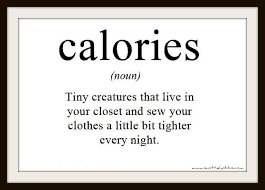Understanding Calories and BMR can assist with weight loss
“How many calories do I need?” This is one of the most asked questions from people trying to lose weight. A short and straightforward question, but it does not have an easy answer. The most correct answer is that it depends on several factors.
What is a Calorie?

A calorie is simply a unit of energy. It is the amount of energy that it takes to raise the temperature of 1 gram of water 1 degree Celsius. Is this important? No, but a critical takeaway fact is that a calorie represents energy. You need the energy to move, make compounds, and maintain and rebuild your body after injuries. If you exceed the number of calories that your body requires in a day, then you will gain weight. If you eat too few calories than your body needs, you will lose weight.
It takes an excess of 3500 calories to gain 1 pound of ugly, disgusting fat. So basically, if you eat 500 calories over what you require to function every day – in a week, you will gain a pound. The reverse can be considered valid as well, but it can be a little more complicated when we start talking about losing weight.
Factors Affecting Calorie Needs:
- Lean Body Mass: Only muscle burns calories. It is your factory that burns the majority of the energy you consume. This statement is a slight over-simplification but is basically correct. If you lift weights as a part of your weight loss regimen, you will be able to eat more calories and still lose weight than if you lose muscle mass.
- Exercise: The more you exercise, the more energy is needed to repair and operate efficiently.
- Gender: This again is due to muscle mass, but there appears to be a slightly higher calorie need for males than females, which may be entirely due to muscle mass.
- Age: Older folks need fewer calories than the young.
- Height: Taller individuals burn more calories.
How do you estimate your calorie needs?
You want to calculate the Basal Metabolic Rate (BMR), which is your base calorie requirement without exercise. Any calculation we perform is an estimate.
Men: BMR = 66.5 + (13.75 x W) + (5.003 x H) – (6.755 x A)
Women: BMR = 655.1 + (9.563 x W) + (1.85 x H) – (4.676 x A)
- W= Weight in Kg = Weight in pounds / 2.2
- H = Height in cm = Height in inches x 2.54
- A = Age in years
Once you calculate BMR, just add your calories burned per day. Remember, you need to recalculate BMR every so often because you are losing weight, or you will plateau. The calories required are related to the weight you currently have, so if you lose weight. Naturally, you will require fewer calories because there is less of you to move and repair.
Eating far below what your body requires (BMR) to function in a day can hurt weight loss. The average adult body requires between 1000 – 1400 calories a day just to function. This calculation does not include exercise. If you eat dramatically below this amount without exercise, you can cause your body to lose fat slower because it will try to hold onto calories for a rainy day. You want to make sure you are backing up your muscle with energy so you do not break as much muscle down for energy.




Be the first to comment on "Calories and BMR Calculations"